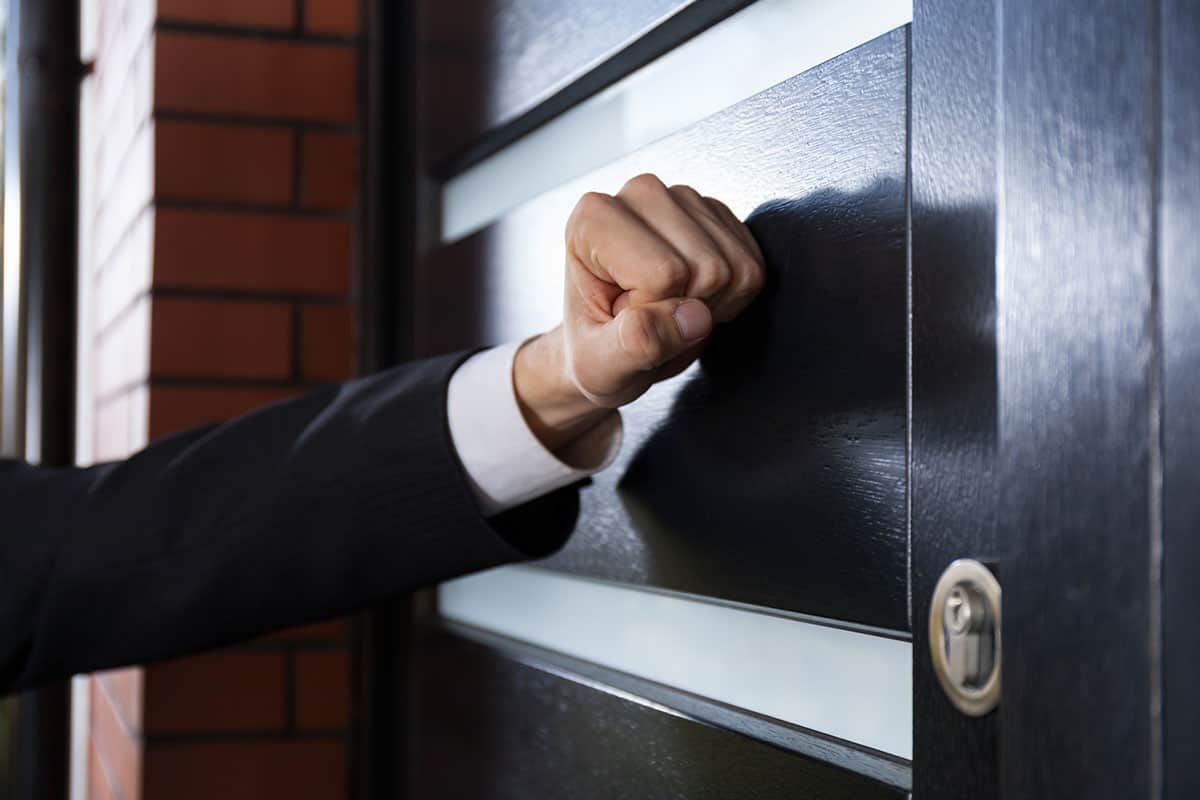This page may contain affiliate links. If you click and buy, we might get a small commission at no cost to you.
While your landlord may own the apartment or house you live in, it’s normal to wonder how much control they have regarding your living situation. Knowing your rights as a tenant will put you in a better position when dealing with various requests or restrictions from your landlord. Can a landlord tell you who can be at your house? How can they restrict visitors? Find out answers to these questions and more about landlords and your interactions with them.
Key takeaways
- Your landlord can’t restrict your visitors unless you break a lease rule or violate laws
- Unofficial tenants are not treated like short-term visitors and should be added to the lease
- You have rights as a tenant that your landlord can’t violate
Can a landlord tell you who can be at your house?
Generally, landlords can’t restrict who you bring over to your rental unit or have spend the night. However, there are exceptions to this rule. Your landlord may place restrictions based on your lease and take action if you break a lease rule or violate local laws. This can be illegal activities happening in your rental unit or guests spending more nights than the lease allows.
You’ll also want to brush up on the landlord-tenant laws in your state, including the details of the Fair Housing Act that helps protect tenants. Typically, landlords can’t enter your property without notice, except in an emergency. They also need to provide notice prior to evictions or raising rent if that’s the action they want to take regarding your choice of visitors.
You also shouldn’t have to tell your landlord every little thing you do, like when you go on vacation. But it’s important that you know what your landlord is going to expect of you before you sign anything.
Why would your landlord restrict some visitors?
There are various reasons why your landlord might have issues with the visitors you have over. Most of the reasons that can violate lease rules or local laws you need to be careful about include:
- Having too many people over when there is a restriction on the number of visitors in the lease agreement
- There is suspicion of illegal drug activity that can lead to eviction or a report to the authorities
- Situations of domestic violence between you and your visitor
- Your visitor brings an unauthorized pet violating your lease agreement
- Your visitor causes damage to the property, especially in shared areas
Can your landlord prevent long-term visitors?
Generally, you can have short-term and long-term visitors without any issues. However, some leases will limit the number of days a guest can spend the night. An example is a limit of 10 days within 6 months. Some leases may also require you to register overnight guests.
If your long-term visitor is more of an unofficial tenant, like a live-in boyfriend or girlfriend or a subletter, there could be more issues. Your landlord could choose to give you a written warning about your guest, send a notice of non-renewal once your lease ends, or choose to add your unofficial tenant to the lease. Adding someone to the lease can give them grounds for raising the rent, depending on your state.
What rights do you have as a tenant?

In the U.S., the details of your rights as a tenant will vary by state. The U.S Department of Housing and Urban Development (HUD) lists the landlord-tenant laws of each state online. There are some general categories you can expect as part of your rights. These include:
- Landlords can’t discriminate against tenants based on their gender, race, familial status, religion, ethnicity, origin, or disability
- The right to a habitable home that is reasonably fit to be lived in
- Limits on how much security deposit landlords can ask for
- Right to privacy so your landlords can’t just enter the property without notice
What should your landlord never tell you to do?
Just like how you have to comply with lease agreements as a tenant, the landlord is also bound to a certain expectation. There are things they should never tell you to do. According to the rights you have as a tenant, your landlord should never tell you to:
- Move immediately without proper notification that complies with your local eviction laws
- Not have kids or ask you questions prohibited by the Fair Housing Act, such as where do you go to church
- Make major repairs on the property, such as steps or a porch
- Store their things in your garage or storage space that’s part of your rental unit
- Let them stop by when they want because they own the property – landlords don’t have unlimited access to premises they rent out
How can you avoid landlord-tenant disputes?
A dispute with your landlord can pop up for various reasons. Most of the time, the last thing you want is to have to get lawyers and courts involved. However, you’ll want to take action against any violations, such as discrimination or violation of privacy rights. Make sure to:
- Study the lease terms
- Know the federal, state, and local laws
- Notify your landlord immediately when an issue arises
- Communicate openly and honestly during your dealings
- Make notes and hard copies of all your correspondence on the issue
If dealing with it yourself doesn’t work out, you can try seeking mediation services. The last resort would be to go to small claims court with your landlord.
Conclusion
Typically your landlord can’t tell you who can be at your house if you are complying with the rules of your lease and not violating any laws. They definitely can’t discriminate against you or your visitor.
While there are reasons why your landlord may have issues, you can avoid conflict by staying on top of your lease details and the federal, state, and local laws to minimize the possibility of landlord disputes.



